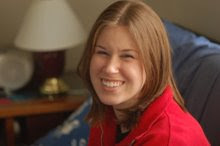Everyone has read, or at least heard of Huxley's "A Brave New World" and George Orwell's "1984." From there, the list of dystopian, futuristic novels goes on: Ayn Rand's "We the Living," Bradbury's "Fahrenheit 451."
So why are those considered classic literature when Alfred Bester's "The Stars My Destination" is not? The stigma of science fiction is a funny thing.
Originally published as "Tiger! Tiger!" in the U.K., the first title is much more fitting than the U.S. title "The Stars my Destination." The American title is much too soft, inviting for a novel centering on Gully Foyle, the most ruthless, single-minded criminal of the future.

Gully Foyle is so inhumane, truly a tiger, that it is impossible to sympathize with him. He is transformed so completely a mere few chapters in that you no longer recognize the man behind the mask.
With such a cruel main character, I was skeptical about getting through the book, but Bester's reputation did not disappoint. It is such a detached, clinical read that one can easily look beyond the horrors the characters endure to focus on the plot. Even the characters who are "normal" (e.g. not on a suicide mission of revenge) are easy to dismiss. The characters are not meant to mimic people, they are just vessels to get the point of the plot across - not flushed out or wholly developed personalities, but one-dimensional creations that Gully Foyle can easily and thoughtlessly destroy.
It was a much faster read than I expected, too. Highly recommend it for anyone into dystopian novels or science fiction.



